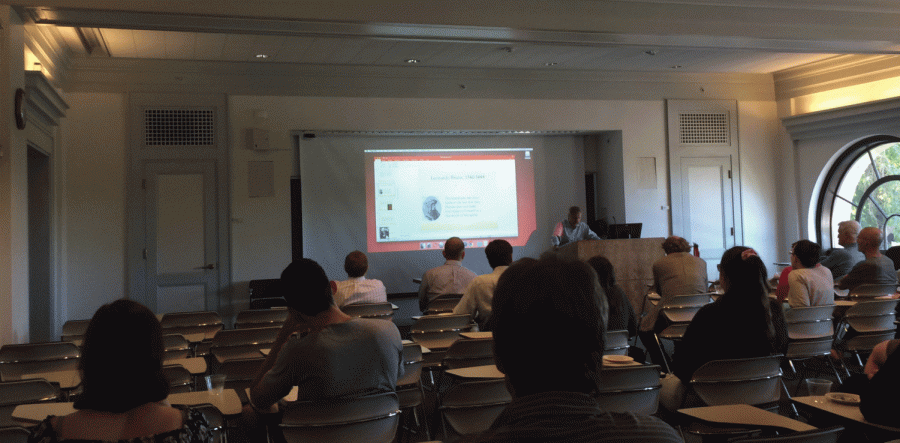Professor Reflects on Freedom of Expression in the College Classroom
On Tuesday, September 6, Roy D. and Margaret B. Wooster Professor of the Classics Robert Garland delivered a lecture called, “Confronting the Confrontational Classroom as a White Male Classicist: Bigotry, Misogyny, Sexism, Homophobia, Racism and Et Cetera.” Garland addressed his approach to teaching, focusing on his inclination against narrowing freedom of expression in order to avoid micro-aggressions in a classroom setting.
Education, as viewed by Garland, serves as a tool for increasing compassion and critical thinking in college students. In order to properly educate students, Garland believes professors should avoid censoring sensitive topics taught at the university level.
Garland grounded his lecture on a recent controversial statement issued by the University of Chicago. This fall, the University of Chicago welcomed the Class of 2020 with a letter from Dean of the Students John Ellison stating the University’s policy on free expression. Accompanying this letter was a report written by the University’s Committee on Freedom of Expression. Garland referenced the University of Chicago’s letter and quotations from the University’s faculty member John Ellison in his presentation.
Ellison’s letter sparked students throughout the United States to react strongly with both negative and positive responses. Sophomore John Bennett recognized the importance of expanding the conversation on freedom of expression.
“Hearing about this topic from a faculty point of view was interesting because usually on campus this dialogue is only heard from a student’s perspective,” Bennett said.
Embracing an atmosphere of open expression, the University of Chicago discouraged students and faculty members from shying away from uncomfortable and controversial topics.
“It is not the proper role of the University to attempt to shield individuals from ideas and opinions they find unwelcome, disagreeable, or even deeply offensive,” the University stated.
From a Classical studies standpoint, Garland does not condone everything written by the philosophers and playwrights he studies. Garland stated that it is not the job of the professor to shelter students from uncomfortable views advocated by the ancient world. Instead, he firmly believes that it is the students’ responsibility to interpret and critically examine the presented material.
“I expect [students] to be able to read Greek and Latin if that is their choosing, to have trained minds, to know how to use sources to interpret Greek and Roman history, to be able to situate themselves within a historical framework… to be compassionate, to be free from conviction and to have their humanity increased by contact with incomparable literature, just as I hope to have my humanity increased every semester I go on teaching,” Garland said.
Garland followed up by acknowledging that only by embracing discomfort with a questioning attitude and examining the ancient world from both a historical and modern perspective, will students grow intellectually.
“Both the Greeks and the Romans committed horrific acts; the killing of all men, the enslavement of women and children after capturing the city, but I still love being in their company,” Garland said.
As a student of the Classics, junior Marie Benton embraces learning about the ancient world.
“It was interesting to hear about roles of censorship and elitism in the classroom in liberal arts institutions such as Colgate,” Benton said. “Professor Garland made such a compelling argument with his ideas as to how professors can make the classroom an environment that not only is safe and comfortable for students but also encourages critical thinking.”
Although not agreeing with all that Classical literature says, Garland believes Greek and Roman authors contribute valuable lessons necessary for students wishing to receive a well-rounded education.







